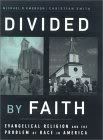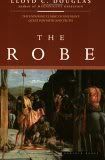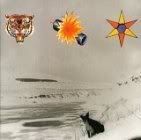 In this 4th chapter of Following Jesus in a Culture of Fear, Bader-Saye tackles the topic of Putting Fear In Its Place. After all, we've said already that being overly fearful is not good, nor is being fearless, so how do we start reflecting on our fear to discern what's going on?
In this 4th chapter of Following Jesus in a Culture of Fear, Bader-Saye tackles the topic of Putting Fear In Its Place. After all, we've said already that being overly fearful is not good, nor is being fearless, so how do we start reflecting on our fear to discern what's going on?
To do this, he returns to Aquinas, offering his definition of fear as a jumping off point: "[F]ear arises from the imagination of a future evil (something that threatens the loss of something we love) that is both imminent and hard to resist." (53) From here he extrapolates that we can offer two broad categories that a 'disordered' fear could fit into. We can either fear what or as we ought not.
As far as fearing what we should not, we can return to the definition and find a couple of criteria to test against. 1) Is the object actually evil? 2) Does it threaten the loss of a proper love? 3) Is it of great magnitude? 4) Is it imminent either in time or distance? 5) Is it difficult to fend off?
A couple of fears of mine that get critiqued under this rubric are heights (not of great magnitude), death by snake bite (not imminent), a computer crash (not a proper love)... and you get the picture. Some of these things get more difficult to discern, particularly imminence and magnitude, as the media floods us with constant streams of information. So how much should we fear global warming? Economic crisis? Poor water quality?
Here we step into the (I find) grayer arena of fearing as we should not. This comes in when we fear excessively, when we allow our focus on avoiding evil to overwhelm our dedication to doing/being good. So, for example, loving my dad tremendously (a proper love) and having the threat of his loss feel more imminent post-rattlesnake shenanigans, and agreeing that death is of great magnitude and impossible to avoid, I have some huge fears about losing him. But if this fear prohibits me from enjoying fully the times I share a beer with him, or limits my ability to be excited about his adventures, then my fear has become excessive. It contracts my world rather than expanding it.
Or what about our possessions? Our homes? It seems important to take care of the things we have, and to understand that goods, to whatever degree, are 'goods'. But does it limit our generosity and hospitality?
Bader-Saye makes the point at the end of the chapter that while reflecting on these things and critiquing our fear is a necessary part of putting fear in its place, we don't have the capacity to simply command ourselves to stop being afraid. No, our fears have to be overwhelmed by bigger and better things.
So I'd be curious, do any of you have stories of conquering a fear, be it trivial or major?
Next week: Community and Courage









3 comments:
Jasie, this is Mike from Indiana, not sure if you remember me but I was at L'Abri a couple of years ago. I check your blog periodically, and I don't have any stories of overcoming fear, but I'm interested in the author's comment about how fear has to be "overwhelmed by bigger and better things", and that we can't stop ourselves from being afraid. I've definitely tried to stop fearing something, only to find that it keeps coming back. I'm wondering what those "bigger and better things" are? The author didn't give any examples at all?
Hey Mike! The author doesn’t give any specific examples, but he says this:
“We cannot command ourselves to feel less fear. Quite the contrary. Our overwhelming fears need, themselves, to be overwhelmed by bigger and better things, by a sense of adventure and fullness of life that comes from locating our fears and vulnerabilities within a larger story that is ultimately hopeful and not tragic. Ford write, ‘[Jesus] taught his disciples that there was no following the way of the kingdom of God without being willing to stake their life on it… It is a basic instance of overwhelming: Abundance of life and immersion in death are inseparable. How can we hope to shape our lives wisely if we have not faced up to death and are willing to risk it?’ Only by facing death, our most primal fear, can we move ahead to embrace life with the great ‘nevertheless’ that is God’s gracious word to a broken world.” (p.60)
For me, this means trying to recognize my fear when I feel it and put it back in perspective. It doesn’t necessarily follow that the feeling goes away, but it does allow me the room to respond in better and more thoughtful ways, rather than simply reacting to what’s in front of me. In my experience my feelings rarely follow suit as quickly or as readily as I’d like them to, but over time the practice seems to help shape my emotional life.
Hope that is at least somewhat helpful!
Yes, that was helpful. Thanks.
Post a Comment